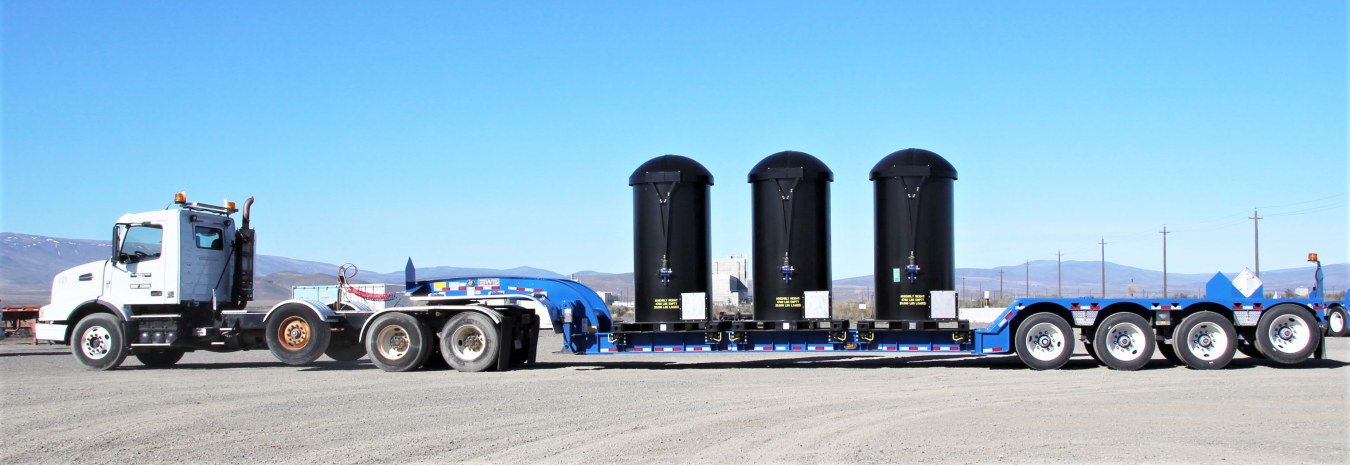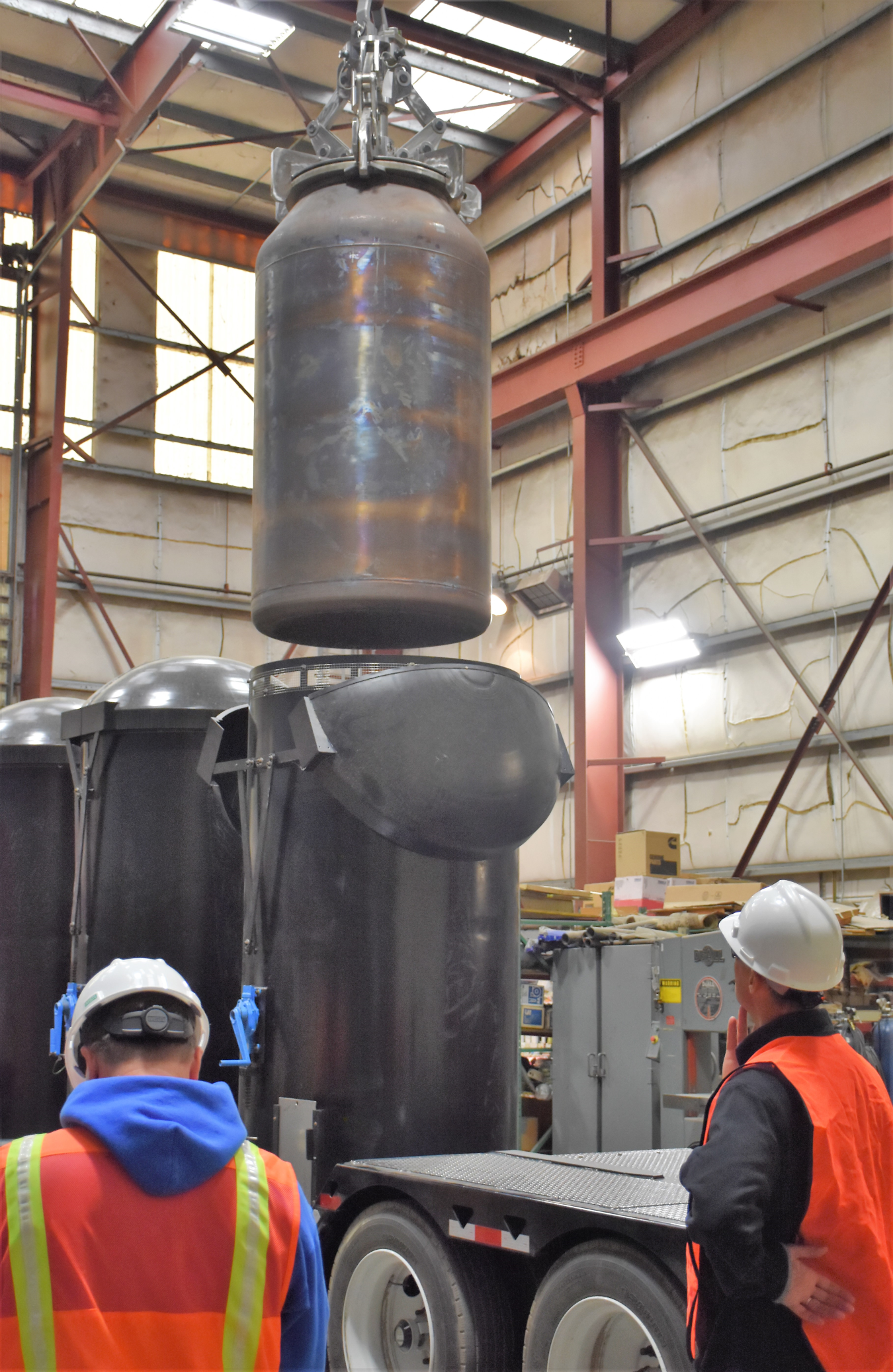EM is testing technologies and processes needed to help immobilize Hanford Site tank waste in glass through a process called vitrification.
Office of Environmental Management
September 12, 2023
RICHLAND, Wash. – EM is testing technologies and processes needed to help immobilize Hanford Site tank waste in glass through a process called vitrification. EM Office of River Protection (ORP) contractor Washington River Protection Solutions (WRPS) has a role in transporting non-radioactive glass created during this testing to an offsite facility for disposal.
In August, workers at the Waste Treatment and Immobilization Plant (WTP) began adding the first batches of glass beads, called frit, into a melter heated to 2,100 degrees Fahrenheit in the plant’s Low-Activity Waste Facility. The molten glass will be poured into stainless steel containers. Once cooled, the containers will be loaded into a holder, called a pallet, for transportation.
During this commissioning phase, a specially designed truck and trailer will transport the containers of non-radioactive glass to Chemical Waste Management, Inc., an industrial and hazardous waste landfill in Arlington, Oregon. Eventually, the same truck and trailer will be used to ship the vitrified radioactive waste from WTP to the Integrated Disposal Facility (IDF) on the Hanford Site.
“This is another achievement that brings us a step closer to immobilizing Hanford’s tank waste,” said Delmar Noyes, ORP assistant manager for Tank Farms Project. “This process allows Hanford Site contractors to test their mission readiness and make any adjustments needed to procedures or processes before commissioning of the facility begins.”

The transportation process has been tested too, with several practice runs from Hanford to the Oregon landfill — a 125-mile, one-way trip.
“We are ready to go,” said Mark Gerboth, WRPS Mission Integration & Optimization manager. “Dry runs are crucial steps toward the safe and compliant transportation of the test glass for offsite disposal, and eventually, transporting vitrified tank waste for onsite disposal at IDF.”
During the nearly yearlong testing and cold commissioning process, the WTP team will fill more than 350 containers with frit to begin with, and ultimately with tank waste simulants and frit to mimic the process that will be used during actual operations. Shipments to the offsite landfill during cold commissioning will range from once or twice a week, to as often as daily.
-Contributor: Joan Lucas
To receive the latest news and updates about the Office of Environmental Management, submit your e-mail address.

